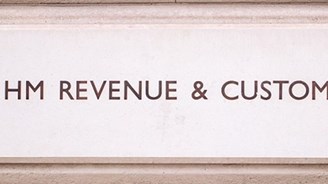Remind your clients before HMRC automate the process

That personal relationship with your clients is a big part of what your day to day work but there's never enough time...
So, what is important in the world of tax that they need to know? Well, it's not new but the penalty regime for late paid PAYE is now starting to bite. Some of you may have warned your clients in 2010 of the new regime starting but, because the penalties are not automated, many clients may have paid late but not yet had the penalty in the intervening period.
There have been numerous Tribunal cases about this issue. Basically, there are two grounds for appeal, either a reasonable excuse or special circumstances. In the vast majority of the cases, the taxpayers' have not been successful in their appeals.
One recent case (TC02145: Andrew Shipman t/a ASAP Computer Services) is a good illustration of the problems clients' face. It concerned an appeal against a penalty of £1,925.44 for late payment in 11 months of 2010/11.
The taxpayer argued that HMRC had deliberately avoided informing the taxpayer of the accruing fine and allowed the fine to build to an unreasonable level - the taxpayer would not have allowed the fine to accrue if he had been aware of it. The taxpayer had told a tax collector in February 2011 that he was paying late each month to help his cash flow and the tax collector made no mention of a penalty and, in fact, gave the opposite impression. In the reminder letter sent every month HMRC could have warned the taxpayer about the accruing fine. In addition, despite 15 communications between the taxpayer and HMRC over a year, HMRC never mentioned a fine. The taxpayer felt that he had a reasonable excuse because he truly believed that there would be no financial implications for paying late, which was backed up by the fact that payments were made on time as soon as he became aware of this.
In addition, the taxpayer argued that HMRC was in breach of the Taxpayer's Charter and para 11(1) Sch 56. The common law duty of fairness required HMRC to issue penalty notices promptly.
HMRC stated that the HMRC official who visited would not have known if the taxpayer had been charged a penalty or not.The Tribunal found that:
• the penalty regime gives no discretion - the rate of penalty is driven by the number of PAYE late payments in the tax year by the employer;
• the legislation does not require HMRC to issue warnings to individual employers, though it would be expected that a responsible tax authority would issue general material about the new system;
• lack of awareness of the penalty regime is not a special circumstance;
• no reasonable employer, aware generally of its responsibilities to make timely payments of PAYE and NIC due, could fail to have seen and taken note of at least some of the information published and provided by HMRC;
• any failure on the part of HMRC to issue warnings to defaulting taxpayers, whether in respect of the imposition of penalties or the fact of late payment, is not either a reasonable excuse or special circumstance;
• the penalty was not excessive in terms of Sch 56;
• although the levying of the penalty was harsh it was not plainly unfair;
• the failure of the HMRC official to advise the taxpayer in February 2011 that he was incurring penalties did not give rise to any legitimate expectation that he would not be charged a penalty; and
• the Tribunal did not consider that the system was contrary to any common law principle of fairness.
So, it might be an appropriate time to remind your clients before HMRC automate the process because then there will be no escape!



